SALCRA, a Prime Mover in Agro-Commodity Circular Economy
A new chapter begins for the Sarawak Land Consolidation and Rehabilitation Authority (SALCRA), as it takes on the mandate to manufacture oil palm-based animal feed. This initiative has the potential to be a game-changer in reducing the cost of livestock feed and the overall cost of producing major livestock.
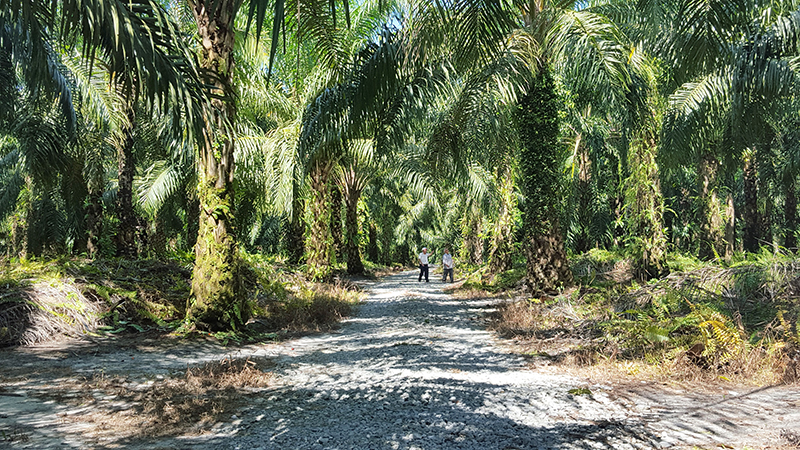
Global food prices have surged in recent years due to climate change, pent-up demand, and supply disruptions, significantly impacting consumers as their food expenditures rise. This inflationhas impacted consumers and directly influenced the cost of living. In Malaysia, one notable impact is the increase in chicken prices due to higher costs for chicken feed. This surge affects the cost of living and raises concerns about potential shortages in countries reliant on imported food necessities.
Sarawak, facing the need for over 600,000 metric tonnes of animal feed annually for major livestock in the state, is prioritising food security and resilience. To achieve this, the Sarawak State Government aims to reduce dependence on imported animal feed by producing it locally.
Oil palm is the lifeblood of Malaysia’s agricultural landscape and economy. In Sarawak, it contributes a substantial 68% to the state’s GDP (2021) within the agricultural sector. However, oil palm waste, including empty fruit bunches (EFB), palm shells, and palm oil mill effluent (POME), poses a compelling disposal challenge.
In August 2023, the Premier of Sarawak, YAB Datuk Patinggi Tan Sri (Dr) Abang Haji Abdul Rahman Zohari Bin Tun Datuk Abang Haji Openg, mandated SALCRA to manufacture animal feed from oil palm waste. This pivotal mandate has ushered in a new chapter for SALCRA.

Established in 1976, SALCRA, as one of Sarawak’s State statutory bodies, aims to alleviate rural poverty in Sarawak, pioneering a development model collaborating with Native Customary Rights (NCR) landowners to develop their NCR lands into productive oil palm plantations (1976- 1985).
This development also brought about substantial physical infrastructure improvements to these rural communities, including the construction of roads and housing. During the era of Expansion and Diversification (1986-1995), SALCRA diversified into crops like cocoa, tea, rubber, and coffee, facing challenges due to market issues and diseases. Embracing the Commercial Management Approach (1996-2005), SALCRA focused on consolidating operations, enhancing productivity, and achieving better financial outcomes through estate mergers and strategic land utilisation. Transitioning to Wealth Creation (2006-2020), SALCRA diversified investments across the palm oil supply chain, fertiliser manufacturing, and other ventures. Challenges arose, with declining palm oil prices in 2017 and policy changes impacting finances post-2018.
From 2020 onwards, SALCRA strived to transform into a resilient, sustainable, and profitable organisation, leveraging valuable lessons from past policy shifts, price fluctuations, and global uncertainties. This transformation aims to ensure that SALCRA effectively navigates uncertainties while improving the quality of life for rural communities participating in the development areas.
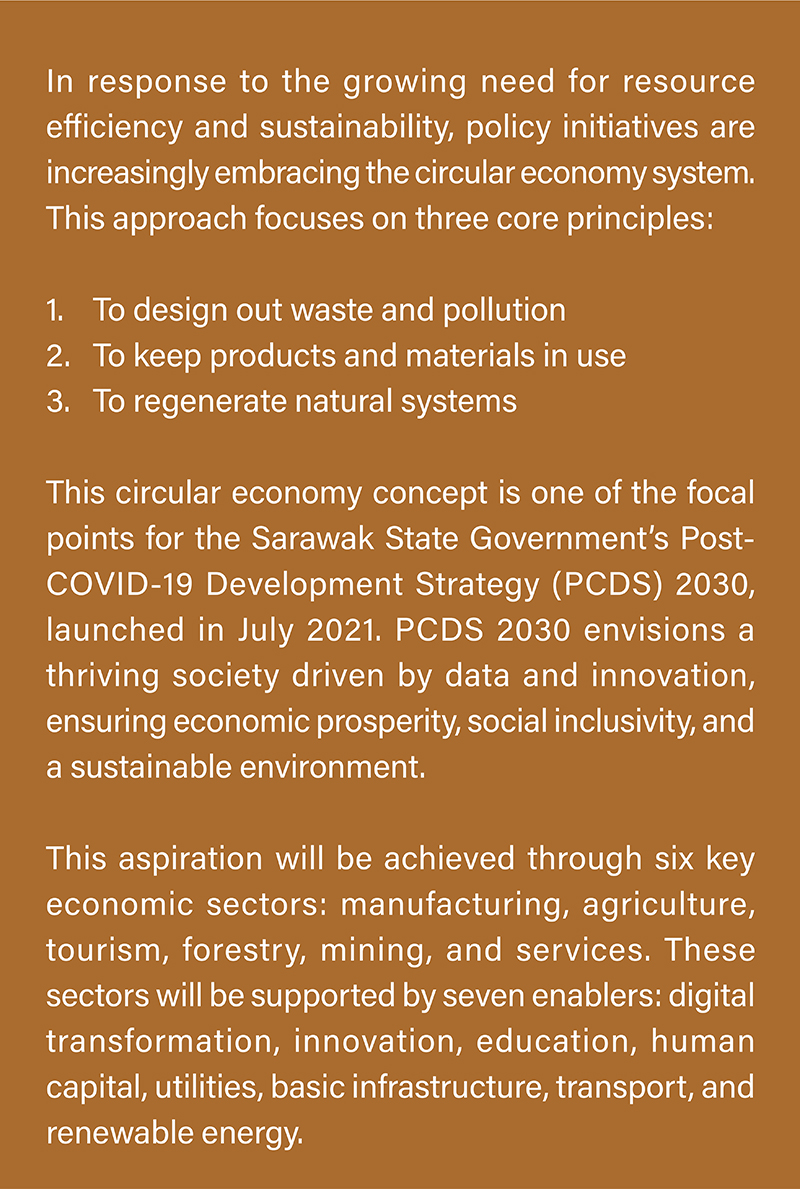
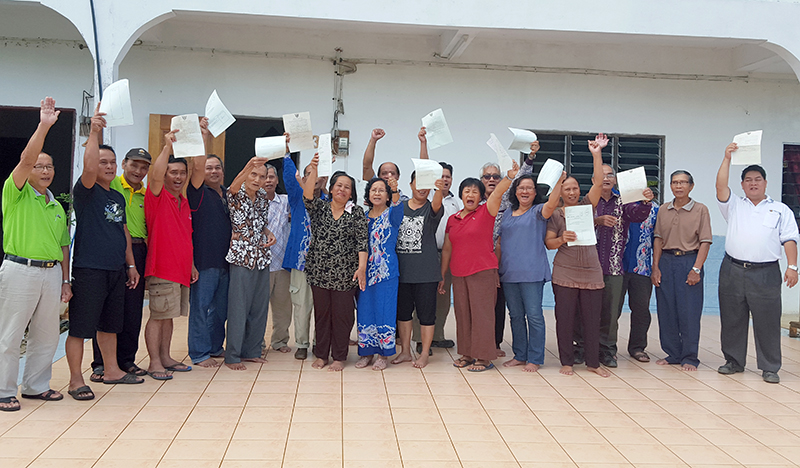
SALCRA’s land development participants receiving their land titles
Today, SALCRA is a beacon of success, having developed over 55,000 hectares of land for more than 20,000 participants across 400 longhouses in Sarawak. These previously underutilised lands have been transformed into commercial agriculture estates, generating numerous job opportunities and business prospects. Participants in SALCRA’s scheme are eligible to receive land titles, solidifying their ownership and contribution to this transformation. To date, SALCRA oversees 19 oil palm estates and 5 palm oil mills.
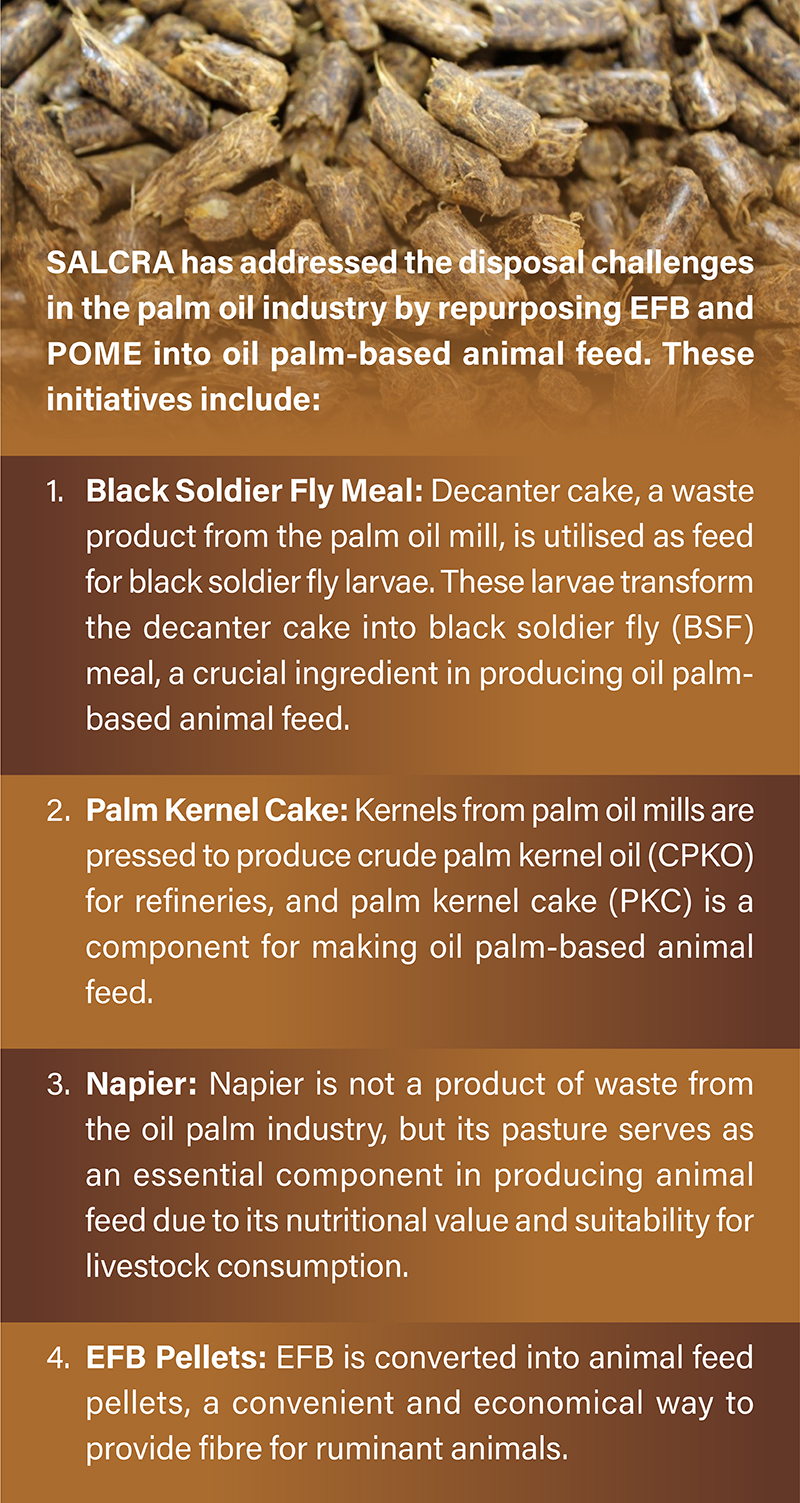
Through these initiatives, SALCRA demonstrates the capacity to produce animal feed annually with an appropriate nutrient composition.
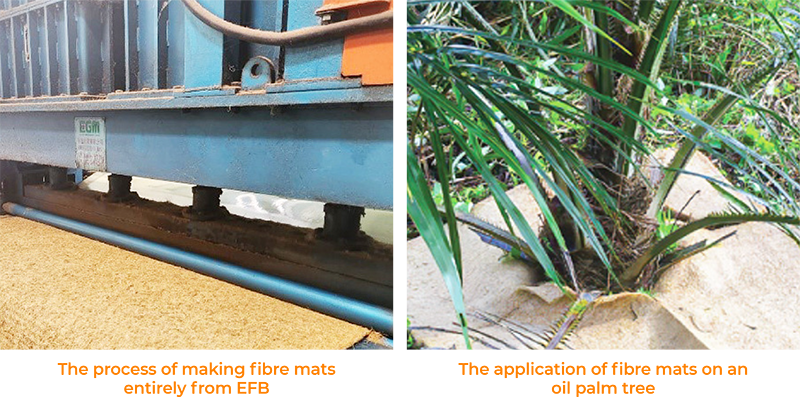
SALCRA has taken further steps to ensure zero waste from operations. Their latest product, Fibre Mat, a biodegradable material used for weed control and slope protection, is made entirely from EFB. It consistently garners high interest and demand, often selling out swiftly during exhibitions.
During the fresh fruit bunch (FFB) harvesting phase, oil palm estates generate residual parts of the tree, such as the fronds (large leaves) and the trunk (the primary part of the tree). Rather than discarding these leftover parts, this initiative repurposes them by shredding the materials into smaller pieces to feed animals. Repurposing these residual parts for animal feed ensures a zero-waste practice within the oil palm industry.
Aligned with PCDS 2030 and one of the global agendas in Sustainable Development Goals (SDGs): food security, the production of palm-based animal feed can be a game-changer in reducing the cost of livestock feed, which can, in turn, reduce the overall cost of producing major livestock.
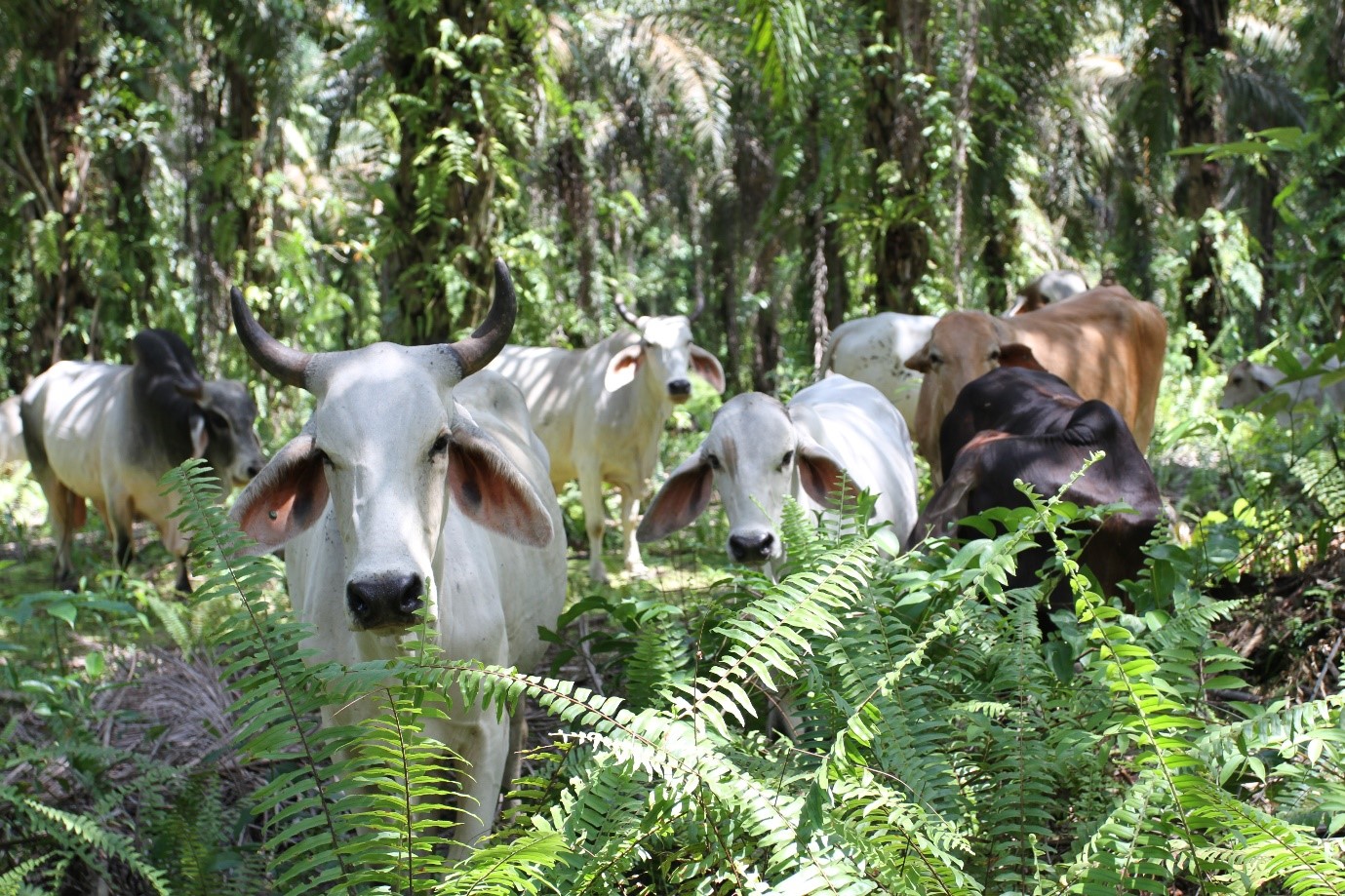
Cattle integration on one of SALCRA’s oil palm estates
As a key player entrusted by the State Government at the intersection of manufacturing and agriculture, one that focuses on local animal feed production, SALCRA continues opening doors to economic opportunities through job employment and business prospects. This initiative also promises to reduce imports by over RM80 million, yielding approximately 100,000 metric tonnes of animal feed for major livestock annually. Beyond its economic impact, this endeavour plays a crucial role in the mission to achieve a 25% self-sufficiency level (SSL) in beef production. Moreover, it aligns with the collaborative efforts of the Ministry of Food Industry, Commodity and Regional Development Sarawak (M-FICORD) towards becoming a Net Food Exporter by 2030.
In conclusion, this move towards a circular economy approach goes beyond merely mitigating the negative impacts of the linear economy. Instead, it heralds a systemic shift that fosters long-term achievements and resilience, benefiting the environment and society. SALCRA’s commitment to a circular economy approach will set an exemplary benchmark for circular economy practices crucial in achieving long-term developmental goals, with an eye on the ultimate vision of transforming Sarawak into a developed state.






